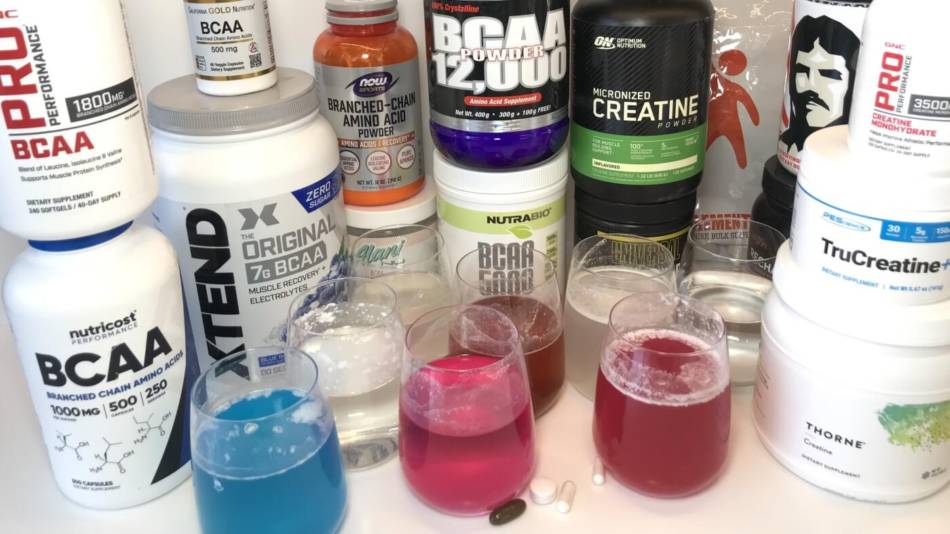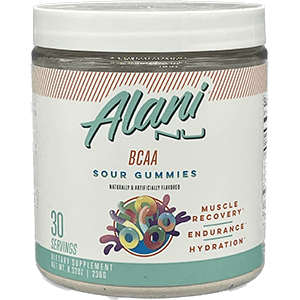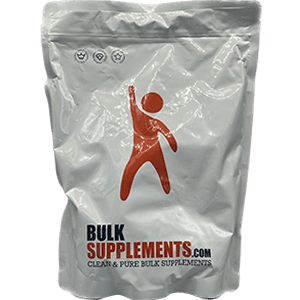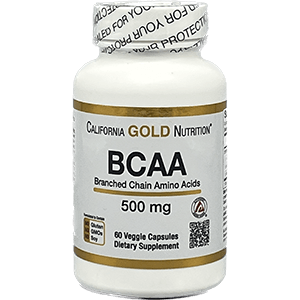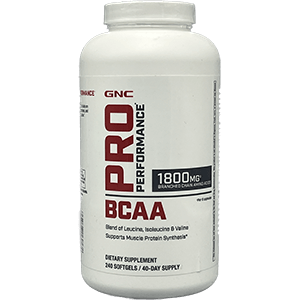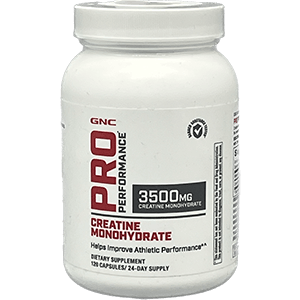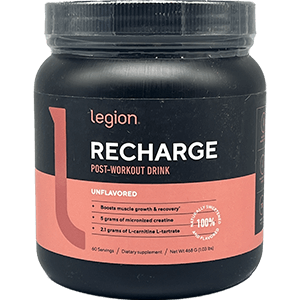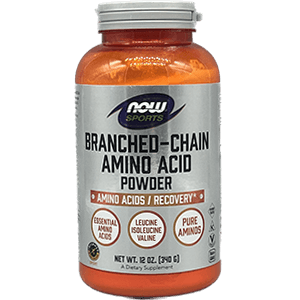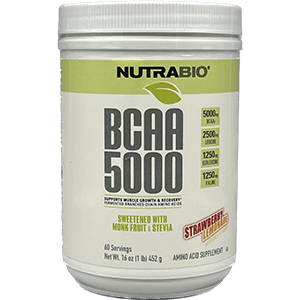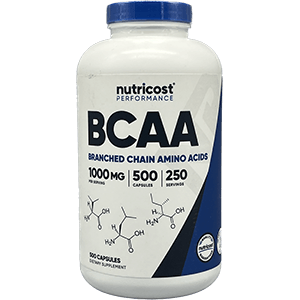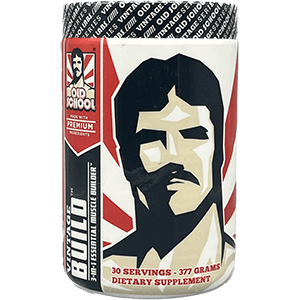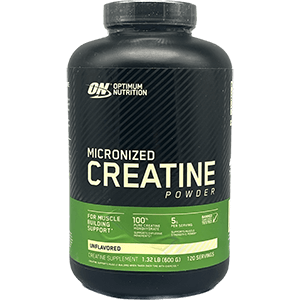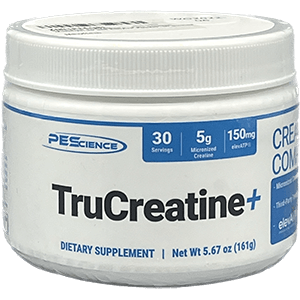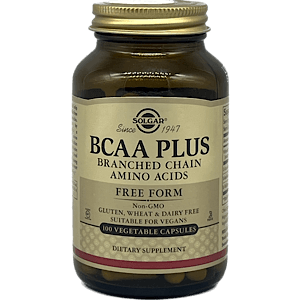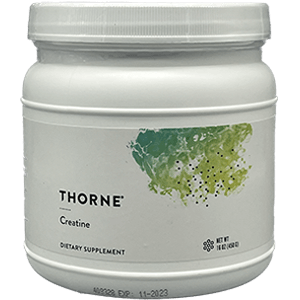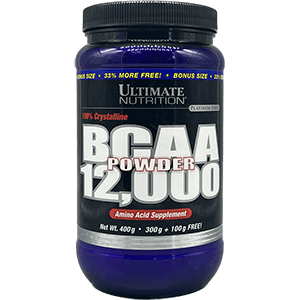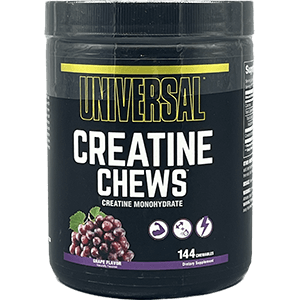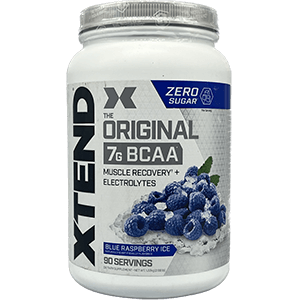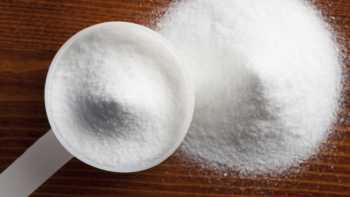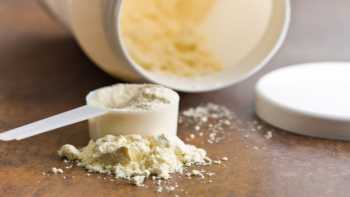Summary
Creatine
-
What Does Creatine Do?
Creatine is an amino acid that helps supply muscles, including the heart, with energy, particularly for short-term, maximal exercise (See What It Is). Some, but not all studies suggest creatine supplements can improve muscle strength and endurance during repeated high-intensity exercise of short duration, such as weight lifting and sprinting, but is not helpful in purely aerobic exercise. Creatine may also be useful in improving exercise tolerance in patients with congestive heart failure (CHF) and muscle strength in people with muscular dystrophies. It does not improve memory in young adults and has shown very limited benefits on cognition in older adults (see What It Does).
-
Is Creatine Safe?
Creatine is generally considered safe when taken in appropriate amounts for short periods of time, but little is known about potential long-term adverse effects of creatine. There is some concern that long-term use at high doses (20 grams/day) may adversely affect the kidneys and cardiovascular system (see Concerns and Cautions).
-
How to Take Creatine?
Commonly, a "loading" dose of creatine is taken for 5 to 14 days, followed by a maintenance dose. However, some studies have shown a benefit using a constant dose rather than a larger loading dose. If using a powder or mix, mix it in very warm water to help it fully dissolve and drink it as soon as possible after mixing with water -- creatine will begin to break down once in liquid. Also, when using creatine supplements, it is important to drink about 8 cups of water per day. For dosage details, plus information about how caffeine intake may affect creatine, see ConsumerTips.

Which Creatine Supplement Is Best?
Creatine comes in various forms, the most common being the monohydrate form, which also yields the greatest amount of free, usable creatine. Certain formulations are inherently unstable and should be avoided. Among products Approved in testing, the cost to obtain 5 grams of creatine monohydrate ranged from 26 cents to more than $1. Among these, CL selected a Top Pick that provides 5 grams of pure creatine monohydrate powder at reasonable cost, as well as a chewable creatine tablet (see What CL Found, How Products Were Evaluated, and CL's Top Picks).
BCAAs
-
What Do BCAAs Do?
Branched chain amino acids are the essential amino acids isoleucine, leucine and valine that the body cannot produce (see What It Is). Taking BCAAs before and after exercise may help reduce or delay the onset of muscle soreness and improve muscle recovery. Leucine appears to be the most significant BCAA for stimulating protein synthesis (see What It Does).
-
Are BCAAs Safe?
BCAAs are considered safe at standard doses, but may interact with certain medications (see Concerns and Cautions).
-
How to Take BCAAs?
For muscle recovery and to prevent soreness, daily doses of 1 to 5 grams have been used. How to take this and doses for other uses are explained in ConsumerTips.

Which BCAA Supplement Is Best?
ConsumerLab's tests revealed that one product contained less isoleucine than claimed. Among products that passed CL's tests, several provided 5 grams of BCAAs for as little as 25 to 50 cents, with others costing over $1 to $2. CL chose Top Picks for BCAAs as flavored and unflavored powders, and as pills.
Other Supplements for Muscle
Learn about
HMB and
taurine. Also see our Reviews of other supplements for muscle, including
L-glutamine,
vitamin D,
protein powders, and "
nitric oxide" supplements.
Products tested in 2023
+— 96 sources
In addition the results of its expert testing, ConsumerLab uses only high-quality, evidence based, information sources. These sources include peer-reviewed studies and information from agencies such as the FDA and USDA, and the National Academy of Medicine. On evolving topics, studies from pre-print journals may be sourced. All of our content is reviewed by medical doctors and doctoral-level experts in pharmacology, toxicology, and chemistry. We continually update and medically review our information to keep our content trustworthy, accurate, and reliable. The following sources are referenced in this article:
- Achison, J Cachexia Sarcopenia Muscle 2022
- Aguiar, Res Sports Med 2022
- Alves, Arthritis Care Res, 2013
- Avgerinos, Exp Geront 2018
- Bagheri, Exp Gerontol 2021
- Bear, Am J Clin Nutr 2019
- Bernat, Appl Physiol Nutr Metab 2019
- Brose, J Gerontol A Biol Sci Med Sci 2003
- Burke, Med Sci Sports Exerc 2003
- Candow, Med Sci Sports Exerc 2008
- Candow, Nutr Health 2020
- Castell, Eur J Appl Physiol Occup Physiol 1996
- Chami, J Nutr Health Aging 2018
- Chilibeck, J Nutra Health Aging 2005
- Clark, JPEN J Parenter Enteral Nutr 2000
- ClinicalTrials.gov
- Cook, J Int Soc Sports Nutr 2011
- Cordova-Martinez, Nutrients 2021
- Courel-Ibáñez, Nutrients 2019
- Cutsem, Med Sci Sports Exerc 2020
- Dreyer, J Clin Inves 2013
- Dreyer, JB JS Open Access 2018
- EFSA Panel on Nutrition, Novel Foods and Food Allergens (NDA
- Edwards, Am J Clin Nutr 2020
- Eghbali, Physiol Res 2024
- English, Am J Clin Nutr 2016
- Fairman, J Sci Med Sport 2024
- Forbes, J Diet Suppl 2022
- Fuld, Thorax 2005
- Han, Orthop Surg 2022
- Hespel, J Physiol 2001
- Jakubowski, Nutrients 2020
- Jówko, Nutrition 2001
- Kimball, J Nutr 2006
- Londono-Velasquez, J Int Soc Sports Nutr 2025
- McMorris, Aging Neuro Cog 2007
- McMorris, Physiol Behav 2007
- McMorris, Psychopharmacology (Berl
- Minetama, Spine J 2023
- NET-PD, JAMA 2015
- Negro, J Sports Med Phys Fitness 2008
- Nunes, Nutr Health 2017
- Oktaviana, J Nutr Health Aging 2019
- Prokopidis, Nutr Rev 2023
- Ra, J Int Soc Sports Nutr 2013
- Robbins, Dietetics 2025
- Shimomura, J Nutr 2006
- Slankamenac, Food Sci Nutr 2023
- Walsh, Sports Med 1998
- Ganguly, AAPS PharmSciTech 2003
- Franco, Rev Bras Med Esporte 2007
- GRAS Notice No 931
- Gufford, J Diet Suppl 2010
- Howard, USOO5968544A 1999
- Jager, Amino Acids 2011
- Jager, J Int Soc Sport Nutr 2007
- Jagim, J Int Soc Sports Nutr 2012
- Joy J Int Soc Sports Nutr 2014
- Lopez-Vaquero, Mol Clin Oncol 2017
- Ostojic, Food Sci Nutr 2019
- Peterson, Cancer 2006
- Saiki, Food Res Int 2025
- Trexler, Int J Sport Nutr Exerc Metab 2015
- Tsujimoto, Oncol Rep 2015
- Ziegenfuss, J Exerc Physiol Online 1998
- AESAN Scientific Committee, Food Risk Assess Eur 2024
- Antonio, J Int Soc Sports Nutr 2021
- Brandley, Front Psychiatry 2022
- Chapman, J Nutr 2000
- Cohen, Clin Toxicol 2021
- Cohen, Clin Toxicol 2025
- Cohen, Drug Test Analys 2014
- Cohen, Drug Test Analysis 2015
- EFSA, EFSA J 2004
- FDA 2018
- Geyer, Br J Sports Med 2014
- Janvresse, Master of Science Thesis 2023
- Kammer, Pharmacotherapy 2005
- Kreider, J Int. Soc Sports Nutr 2017
- Laviano, Eur J Clin Nutrition 2014
- Li, Brit J of Cancer 2015
- Machado, Braz J Pharm Sci 2009
- Mebane, Am J Psychiatry 1984
- Mohammadyasin, J Int Soc Sport Nutr 2025
- Moore, Nutrients 2023
- Nutrastore Prescribing Information 2004
- Ogden, Nutrients 2020
- Persky, Creatine and Creatine Kinase in Health and Disease 2007
- Pline, Ann Pharmacother 2005
- Poortmans, Med Sci Sports Exerc 1999
- Toniolo, J Neural Transm (Vienna
- Vahedi, J Neurol Neurosurg Psychiatr 2000
- Weinblatt, J Med Cases 2022
- Williamson, BMJ Case Rep 2014
- Zhang, Nat Metab 2024
- van der Merwe, Clin J Sport Med 2009
You must
become a ConsumerLab.com member to get the full test results for creatine and BCAA supplements. You will get results for 14 creatine and BCAA supplements selected for testing by ConsumerLab, as well as three products that passed the same testing through CL's voluntary Quality Certification Program.
In this comprehensive review, you'll discover:

 Which creatine supplements and BCAA supplements failed testing and which passed
Which creatine supplements and BCAA supplements failed testing and which passed CL's Top Picks among the best creatine and BCAA supplements
CL's Top Picks among the best creatine and BCAA supplements Cost comparisons to help you choose a creatine or BCAA supplement offering the best value
Cost comparisons to help you choose a creatine or BCAA supplement offering the best value What creatine and BCAA supplements may and may not do for your health
What creatine and BCAA supplements may and may not do for your health
 The differences among forms of creatine: creatine monohydrate, creatine HCL, creatine AKG, dicreatine malate, tricreatine malate, and KreAlkalyn
The differences among forms of creatine: creatine monohydrate, creatine HCL, creatine AKG, dicreatine malate, tricreatine malate, and KreAlkalyn Differences among the BCAAs (isoleucine, leucine, and valine)
Differences among the BCAAs (isoleucine, leucine, and valine) Dosage for specific uses of creatine and BCAAs
Dosage for specific uses of creatine and BCAAs The best way to take creatine and BCAA supplements
The best way to take creatine and BCAA supplements Safety concerns, potential drug interactions and side-effects of creatine (including if creatine causes hair loss) and BCAAs
Safety concerns, potential drug interactions and side-effects of creatine (including if creatine causes hair loss) and BCAAs
As a ConsumerLab.com member, you may print a copy of this report for your personal use.
You can access a special print version by clicking the "Print" icon in the upper right corner of this report.
You can then use your web browser's print functions to print the whole report or just selected pages.
You may also email or post a link to this report using the web address above.
Non-members using the link will see a free summary and can join to view the full report.
Other means of copying or distributing this report, in part or full, are not permitted.
If you are sight-impaired and your computer is having trouble converting the text in this report to speech,
contact us for assistance at Membership@ConsumerLab.com or by
phone at 914-722-9149.

